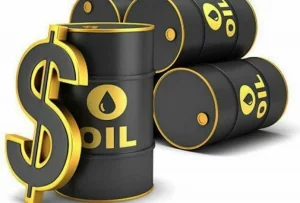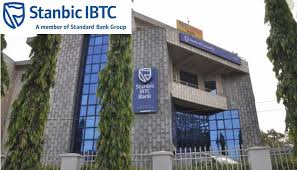
By Habibat Aliu
A STAKEHOLDERS’ technical session on Accountability for Gas Flared and Clean Energy Advocacy (AGFACEA), with a coalition of 10 cluster members under the auspices of Advocacy for Gas Flared Accountability in Nigeria (AGFAN) with support from the United States Agency for International Development (USAID) and Palladium, has said Nigeria loses $600 million yearly to under-reporting and unpaid penalties for gas flared and vented.
They decried the weak penalties needed to serve as deterrence against such practice.
Members of the cluster include Initiative for Community Development (ICD), which acted as an anchor; ANPEZ Centre for Environment and Development; Capital Multimedia Limited (CML); Community Initiative for Enhanced Peace and Development (CIEPD) and Centre for Transparency Advocacy (CPA).
Others are the Centre for Development Support Initiatives (CDSI); Environmental Rights Action/Friends of the Earth Nigeria (ERA/FoEN); Entrepreneurial Development Initiative (ENDIP); Corporate Accountability and Public Participation Africa (CAPPA) and Muma Foundation.
The forum, which was held in Lagos, noted that Nigerians face an increasingly dire situation in their energy requirements, as low-income earners, particularly women, now resort to firewood, charcoal and sawdust to make meals since they could no longer afford Liquefied Petroleum Gas (LPG) or cooking gas and Dual Purpose Kerosene (DPK), commonly called kerosene.
It regretted that the Nigerian government has allegedly continued to encourage and allow reckless flaring and venting of the abundant product in over 178 flare sites across the federation, particularly in the Niger Delta region, with all attendant devastation, degradation and pollution of the environment.
Organisers of the programme, which also has the National Oil Spill Detection and Remediation Agency (NOSDRA), Nigerian Extractive Industry and Transparency Initiative (NEITI), Nigerian Upstream Petroleum Regulatory Commission (NRC), Nigerian National Petroleum Company Limited (NNPCL) as stakeholders, noted that the advocacy was to improve transparency and accountability in flared and vented gas volumes, ensure penalty payment, as well as assist the Federal Government to achieve its 5,000,000 metric tons (MT) by 2023 target, besides reducing GreenHouse Gasses (GHG) emissions and boosting Nigeria’s socio-economic status.
Lamenting that there were no harmonised data on the factual volume of gas flared or vented, a member of the AGFAN cluster under the aegis of Strengthening Civic Advocacy and Local Engagement (SCALE), Everest Nwankwo, explained that from the foregoing, a mechanism for peer review was necessary, not only to determine the exact amount of gas flared but also to determine the proper penalty to be paid by defaulting companies.
At the technical session, which comprised representative of Nigeria Union of Petroleum and Natural Gas Workers (NUPENG), Ayedun Olarenwaju, Victor Eromosele of Centre for Petroleum Information, Dr Olayinka Oyegbile of Development Works, Council of Renewable Energy’s Samuel Nwosu and petroleum geologist, Dr Harry Thomas, NOSDRA representative, Dr Mahmood Ibrahim, explained that over four billion cubic feet of gas (CFG) had been flared from 2012 till date, pointing out that flare tracker had revealed that heavy flaring was ongoing in OMLs 60, 61 and 63, among others.
He added that despite the Independent Power Plant (IPP) in the Kwale-Okpai axis, there is still flaring of gas and power outage in the area, especially in Utagba Ogbe (Kwale) in Ndokwa West Council of Delta State, insisting that Nigeria will benefit more from conversion and maximisation of its gas resources rather than merely collecting penalties for gas flaring and venting, which remain a waste of the country’s oil and natural gas resources.
In his submission, Eromosele argued that Nigeria’s problem was a delay and lack of political will to pursue policies to their logical conclusion and proper implementation of those that have been vetted, maintaining that as long as the country continues to waste time on critical issues, especially those concerning green and renewable energy, the country will continue to falter as the world moves faster in adopting clean energy as opposed to fossil fuels and depleting dirty energy.
To Nwosu, there is a need to harmonise Nigeria’s numerous overlapping policies, stating: “We need to think globally and act locally. One of our problems is that we have too many policies.”
On his part, Oyegbile, who spoke purely from the perspective of journalism to the issue of the provision of clean energy sources, noted that policy influencers should de-emphasise the future and take care of the present generation, especially those who should have their energy needs met first before making provision for generations yet unborn.







